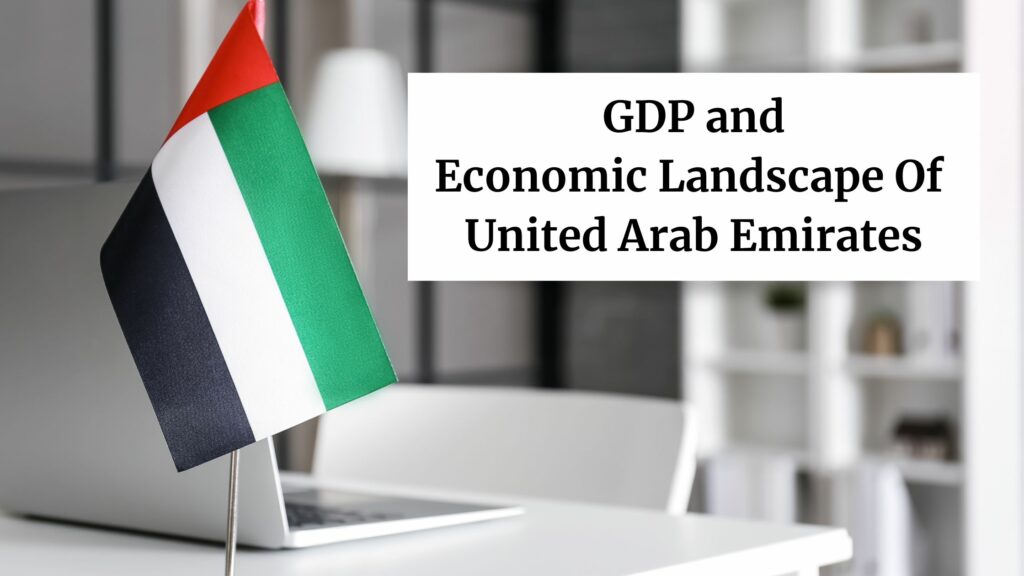The UAE has long recognized the importance of diversifying its economy beyond the oil and gas industry. As a result, the government has implemented business-friendly policies and initiatives to attract foreign investment and foster an environment conducive to economic growth. This includes low tax rates, streamlined business setup processes, and strategic free zones that offer incentives and world-class infrastructure. Additionally, the UAE’s cosmopolitan cities, such as Dubai and Abu Dhabi, boast state-of-the-art transportation networks, world-class amenities, and a high standard of living, making them appealing destinations for businesses and their employees.
The UAE’s geographic location serves as a strategic advantage, positioning it as a gateway between East and West. Its proximity to major markets in Asia, Europe, and Africa, coupled with its modern ports and airports, facilitates seamless trade and logistics operations. Furthermore, the UAE’s focus on innovation and technology has paved the way for the emergence of dynamic sectors such as finance, healthcare, renewable energy, and information technology, providing diverse opportunities for businesses to thrive and contribute to the nation’s economic growth.
What are the popular business sectors in the UAE?
- Trade and Logistics: The UAE’s strategic location and world-class infrastructure have made it a major global trade and logistics hub, facilitating the movement of goods and services across the Middle East, Africa, and beyond.
- Tourism and Hospitality: With its stunning architecture, world-class attractions, and luxurious hotels and resorts, the UAE has become a sought-after destination for leisure and business travelers alike.
- Real Estate and Construction: The UAE’s booming real estate sector has witnessed the development of iconic projects, such as the Burj Khalifa and Palm Jumeirah, catering to both residential and commercial needs.
- Finance and Banking: Dubai has emerged as a leading financial center in the region, offering a wide range of banking and financial services, including Islamic finance and fintech solutions.
- Energy (Oil, Gas, and Renewables): While the UAE is a major global player in the oil and gas industry, it is also actively pursuing renewable energy sources, such as solar and nuclear power, to diversify its energy portfolio.
- Healthcare and Pharmaceuticals: With a focus on providing world-class healthcare facilities and promoting medical tourism, the UAE’s healthcare sector has witnessed significant growth and investment.
- Information Technology and Telecommunications: The UAE’s commitment to digital transformation and technology adoption has fueled the growth of the IT and telecommunications sectors, attracting major players and fostering innovation.
- Manufacturing and Industrial: The UAE’s strategic location and advanced infrastructure have made it an attractive destination for manufacturers, particularly in industries such as aerospace, automotive, and pharmaceuticals.
- Education and Training: The UAE has invested heavily in developing a robust education system, attracting international universities, and promoting vocational training to cater to the needs of the growing workforce.
- Media and Entertainment: With state-of-the-art production facilities and a thriving media and entertainment industry, the UAE has become a hub for creative industries, hosting major events and attracting global talent.
How does the UAE’s business culture differ from other regions?
The business culture in the UAE is a unique blend of traditional Arab values and modern, global practices. While the country has embraced innovation and technological advancements, it also places a strong emphasis on personal relationships, hospitality, and respect for cultural norms. Building trust and establishing personal connections are crucial for successful business dealings in the UAE, often taking precedence over formal contracts and agreements.
Additionally, the UAE’s business culture is heavily influenced by Islamic principles and customs. This manifests in various aspects, such as dress codes, greeting protocols, and communication styles. For instance, it is important to dress modestly and avoid revealing attire, especially for women. Greetings are often accompanied by handshakes and inquiries about one’s well-being before delving into business matters. Understanding and respecting these cultural sensitivities is essential for fostering positive relationships and conducting business effectively in the UAE.
What are the challenges associated with doing business in the UAE?
While the UAE offers an attractive business environment with numerous opportunities, it is not without its challenges. Foreign businesses and entrepreneurs looking to establish operations in the UAE should be prepared to navigate a unique set of cultural, regulatory, and logistical challenges. Understanding and addressing these challenges proactively can contribute to the overall success and smooth operation of businesses in the UAE. The following listicle highlights some of the key challenges associated with doing business in the UAE:
- Navigating complex bureaucratic processes: Obtaining the necessary licenses, permits, and approvals can be a lengthy and intricate process, requiring patience and a thorough understanding of the system.
- Understanding and adapting to local business customs and etiquette: The UAE has a unique business culture that blends traditional Arab values with modern practices, which can take time for foreign businesses to navigate and adapt to.
- Securing the necessary licenses and approvals for business operations: Depending on the industry and location, businesses may need to obtain multiple licenses and approvals from various authorities, which can be time-consuming and challenging.
- Finding suitable office or commercial spaces, especially in prime locations: The UAE’s major cities, such as Dubai and Abu Dhabi, have limited commercial real estate available, driving up prices and making it challenging to secure prime locations.
- Attracting and retaining a skilled and diverse workforce: While the UAE is home to a diverse expatriate population, competition for top talent can be fierce, and businesses may face challenges in recruiting and retaining skilled employees.
- Complying with evolving regulations and policies: The UAE’s regulatory environment is constantly evolving, and businesses must stay up-to-date with changes in laws and policies to ensure compliance and avoid penalties.
- Managing costs, such as high rental rates and operational expenses: The UAE, particularly in major cities, is known for its high cost of living and operational expenses, which can impact profitability for businesses.
- Building a strong local network and establishing business relationships: Personal connections and networking play a crucial role in the UAE’s business culture, and building these relationships takes time and effort.
- Adapting to the hot and arid climate, which can impact certain industries: The UAE’s climate can pose challenges for certain industries, such as construction, logistics, and outdoor events, requiring proper planning and mitigation strategies.
What are the requirements for obtaining a business license in the UAE?
It’s important to note that the requirements may vary based on the emirate, the type of business activity, and whether the business is being established in a free zone or the mainland. Consulting with local authorities or professional service providers is recommended to ensure compliance with all necessary requirements.
- Completed application form, providing details about the proposed business activity, company name, and ownership structure.
- Proof of business premises, such as a rental agreement or ownership documents for the desired office or commercial space.
- Memorandum of Association and Articles of Association, outlining the company’s objectives, ownership structure, and governance.
- Copies of the passport(s) and visa(s) of the owner(s) or shareholder(s), along with their residential addresses and contact information.
- Initial approval from the relevant authority, such as the Department of Economic Development (DED) or a free zone authority, depending on the location of the business.
- Proof of company name approval, ensuring that the proposed name complies with local regulations and is not already in use.
- Payment of applicable fees, which may include trade license fees, registration fees, and other charges based on the type of business and its location.
- Additional documents or approvals may be required depending on the nature of the business, such as industry-specific licenses, permits, or certifications.
What are the legal forms of business ownership available in the UAE?
It’s worth noting that the legal requirements, capital requirements, and ownership structures may vary depending on the specific legal form and the emirate in which the business is established. Additionally, certain business activities may be subject to additional regulations or restrictions.
| Legal Form | Description |
|---|---|
| Sole Establishment | A company owned and operated by a single individual. This is the simplest form of business ownership in the UAE. |
| Civil Company | A partnership between two or more individuals or companies. Partners have unlimited liability for the company’s debts and obligations. |
| Public Joint Stock Company (PJSC) | A company with a minimum capital requirement, whose shares are publicly traded on a stock exchange. PJSCs must have at least five shareholders. |
| Private Joint Stock Company | A company with a minimum capital requirement, but with shares privately held and not publicly traded. It must have at least three shareholders. |
| Limited Liability Company (LLC) | A company with limited liability for its members/shareholders. This is a popular form of business ownership in the UAE, particularly for small and medium-sized enterprises. |
| Branch Office | A branch or representative office of a foreign company operating in the UAE. The parent company is fully responsible for the branch’s liabilities. |
| Free Zone Company | A company established within one of the UAE’s free zones, which offer various incentives and benefits, such as 100% foreign ownership and tax exemptions. |
What are the advantages of setting up a business in the UAE free zones?
The United Arab Emirates is home to numerous free zones, which are designated economic areas that offer businesses a range of incentives and a favorable operating environment. These free zones have become increasingly popular among local and international companies looking to establish a presence in the UAE. By setting up within a free zone, businesses can benefit from a host of advantages that facilitate growth, streamline operations, and enhance competitiveness. The following listicle highlights some of the key advantages of establishing a business in a UAE free zone:
- 100% foreign ownership: Free zones allow 100% foreign ownership of businesses, eliminating the need for a local partner or sponsor.
- Tax exemptions: Companies operating within free zones are typically exempt from corporate taxes, personal income taxes, and import/export duties.
- Streamlined business setup: Free zones offer simplified and expedited processes for company formation, licensing, and other regulatory requirements.
- World-class infrastructure: Free zones boast state-of-the-art facilities, including office spaces, warehouses, logistics centers, and amenities to support various business operations.
- Strategic locations: Many free zones are strategically located near major transportation hubs, such as airports, seaports, and highways, facilitating easy access to global markets.
- Fewer restrictions on hiring: Free zones often have more flexible policies for hiring foreign workers, making it easier for companies to attract global talent.
- Access to support services: Free zones typically offer a range of support services, including banking, legal, and professional consulting, to assist businesses with their operations.
- Business networking opportunities: Free zones foster a vibrant business community, providing opportunities for networking, collaboration, and knowledge sharing among companies from various industries.
- Intellectual property protection: Some free zones have dedicated intellectual property protection laws and regulations, safeguarding businesses’ intellectual assets.
- Focus on specific industries: Many free zones are tailored to specific industries, such as technology, media, healthcare, or finance, providing a conducive environment for businesses in those sectors.
How can small and medium enterprises (SMEs) secure business loans in the UAE?
Small and medium enterprises (SMEs) in the UAE have several avenues to secure business loans to support their growth and expansion. Firstly, banks and financial institutions in the UAE offer tailored loan products specifically designed for SMEs, providing flexible repayment terms and competitive interest rates. These loans typically require the SME to present a comprehensive business plan, financial statements, and collateral to secure the funding. Additionally, the UAE government actively supports SMEs through various initiatives, such as the Khalifa Fund for Enterprise Development and the Mohammed Bin Rashid Establishment for SME Development, which offer funding and support services to qualifying businesses. These entities often provide loans with favorable terms and may also offer mentoring and guidance to help SMEs navigate the loan application process and optimize their chances of approval.



